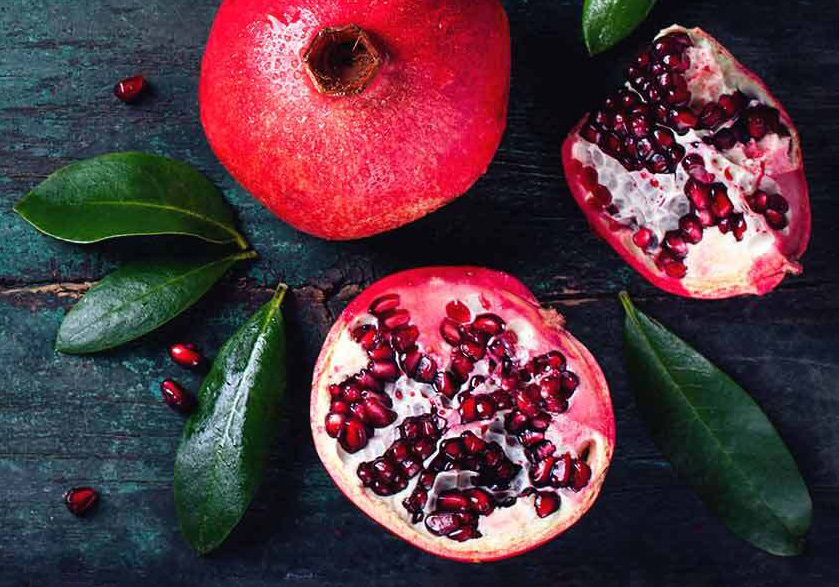Pomegranate the Superfood
Benefits of Drinking Pomegranate Juice
A quick Google search on the benefits of drinking pomegranate juice turns up a library of information and studies. And you see pomegranate extract featured in wellness and beauty supplements, including immune-boosting regimes and skin rejuvenation treatments.
Food as medicine is, of course, not a new concept, and goes back to the most noted societies of old.
Historic Healing
Pomegranates were used for their reported curative and preventative powers across Southern Europe, the Middle East, India and Asia. Ancient Egyptian and Ayurvedic medicine regularly used pomegranate extract for infection and gastrointestinal issues. Hippocrates, the Greek physician circa 400 BCE who is often called “the father of medicine,” recommended pomegranate extractions to treat inflammation and digestive ailments. And in ancient Rome, the celebrated historian Pliny called the pomegranate a universal medicine.
In Azerbaijan, where the pomegranate is thought to originates from and where our orchards are located, the fruit is revered for its anecdotal powers of vitality. It wasn’t uncommon for a local healer to prescribe boiled pomegranate for digestive trouble and slow-to-heal wounds.
Antioxidant Effects
Pomegranates are perhaps most celebrated these days for their antioxidant properties because of the polyphenols they contain. Each cup (250 mL) of Red Crown Original Pomegranate Juice has more than 1000mg of polyphenols. That’s three times more than green tea, cranberry juice or blueberry juice, and surpasses the known polyphenol counts of other pomegranate juices on the market.
Polyphenols are powerful antioxidants. And antioxidants are vital in protecting us against free radicals which, over time, diminish the functioning of our cells.
Free radicals are unstable atoms missing an electron, and desperately looking for another. They behave like looters, ransacking our bodies for extra electrons to steal, damaging cells and DNA in the process.
Our bodies naturally create free radicals all the time through normal metabolism or immune activity. They also result from environmental stressors such as pollution and sun exposure.
We can cope with free radicals to a point. Antioxidants that we create internally and get from certain foods neutralize these free radicals before they do much damage. However, when free radicals outpace the available antioxidants they cause harm throughout. This is known as oxidative stress. One solution is to increase antioxidant intake, as we can with our food choices.
Antioxidant-rich foods – so-called “superfoods” – include green tea, dark chocolate, blueberries, and, of course, pomegranates and pomegranate juice.

